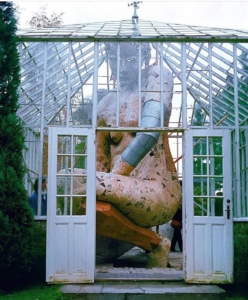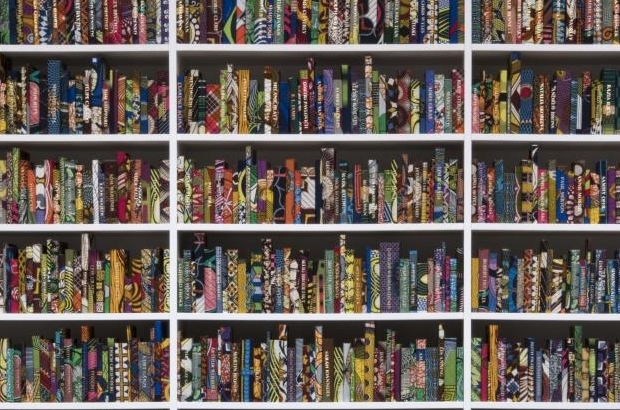SHANTI GIOVANNETTI-SINGH explores the transformative power of literature in times of quarantine.
On Monday 23rd March, Boris Johnson announced a UK lockdown in the attempt to tackle the spread of Covid-19. This frightening and profoundly unprecedented period is encapsulated by one clear, albeit surprisingly challenging, command: stay home. For the first time, in centuries perhaps, we have been ordered, by law, to remain inside the increasingly claustrophobic confines of our own homes. This bizarre experience, in which we must shun the outdoors and refrain from social gatherings, is so very alien and fearful to the majority of the population. From anxiety, to frustration, to boredom, this period of quarantine has evoked a range of emotions and responses. Whilst of course, the circumstance of this forced isolation is singular- it is the result of a deadly pandemic which is ravaging communities and putting millions of individuals at risk- my personal experience of the lockdown has brought back memories of a previous instance in which I was confined to my home.
It was summer 2018. With the memory of my final A-Level exam fresh in my mind, I was savouring the thought of having finished school forever. It was a liberating time: late in June, the sun was ripe, and I was utterly carefree. Spending my days lying in my garden, basking in the golden haze that filtered into the backyard, I was the embodiment of indolence. The following week set to be equally enthralling, with a music festival and an interrailing trip on the horizon. This, unfortunately, like nearly all moments of carefree bliss, was painfully transient. One evening, after a long day of lazing by the local lido with friends, I noticed what I thought was a mosquito bite on my finger. Thinking not much of it, I went to bed, eagerly anticipating another day of rest and relaxation.
The following morning,I woke up with a deep tingling sensation seeping through my body. Sadly this ‘tingling’ was not a metaphor to describe my zest for life. It was in fact a very apt description of the physical reaction I had experienced overnight. Looking down at my body, a strange rash had covered my arms and legs, encircling my torso. Panic stricken I was ready to call 999. Was it meningitis? Had I just developed leprosy? Was I infected with a formerly dormant strand of the plague? Un-reassured by my parents, who also feared meningitis, I went to A&E, with my light-hearted spirit a distant memory. Once examined, I was reassured that I did not, in fact, have meningitis. Rather I was experiencing ‘textbook’ symptoms of an allergic reaction, presumably to the insect bite. This initial wave of relief was somewhat subdued by the following information I received: avoid travelling, avoid strenuous activity and most importantly avoid direct sunlight.
Avoid direct sunlight? How would I be able to resist the warming beams which had brought me such pleasure over the past few days? Next, came the inevitable cancellation of the summer plans which I had so looked forward to after a year of coursework and exams. Whilst my friends basked in the Balearic sun, I was bed bound and confined to the dark interior of my room. Alone, and locked in the confines of my house, in what should have been one of the best periods of my life, I was absolutely devastated. With not much else to do, I turned to a familiar source of comfort – a good book.

With all travel plans halted until I recovered from my allergy (it took two weeks for the reaction to die down), I embarked on a profound literary journey. Prose became my passport as, guided by a plethora of texts, I glossed through continents, cultures and culinary creations. I began my travels island hopping in the Caribbean, drifting between Jamaica and Dominica. Through Jean Rhys’ Wide Sargasso Sea, I immersed myself in the fauna of these volcanic islands, tracing the metamorphosis of young Antoinette into the grotesque Bertha – the infamous madwoman in the attic of Charlotte Brontë’s Jane Eyre. Absorbed by Rhys’ scintillating narrative, I observed how attempts to subdue the lurid, hyper-fertile vegetation enacted the confrontation between the exoticised subject and the oppressive male coloniser.
Next on my itinerary were the scorching shores of apartheid South Africa. Once landed, I quickly became ensnared in Lewis Nkosi’s Mating Birds, a text often described as a hybrid between Dostoevsky’s Crime and Punishment and Camus’ L’Ètranger. This tantalising tale is centred around one of the many so-called ‘rape’ trials under apartheid, in which people of colour were convicted for engaging in sexual activity with members of the white community. As Nkosi charts the protagonist’s journey from obsession to transgression, he perpetually reroutes our moral compass, as we repeatedly question the innocence of the narrator.
The next stop was Afghanistan, as Khaled Hosseini guided me through the rose-water perfumed streets of Kabul, in his twin tales of Afghan society The Kite Runner and A Thousand Splendid Suns. His ‘father-son’ tale, The Kite Runner, charts the murky waters of masculine identity. Focalised on Amir and his servant and friend Hassan, a member of the ostracised Hazara ethnic group, The Kite Runner is a tale of betrayal and guilt. A Thousand Splendid Suns tells an equally harrowing story of female friendship in this ‘mother-daughter’ tale. Trapped in an abusive marriage, and subject to increasingly oppressive laws, Mariam and Leila find strength through their unique relationship. A Thousand Splendid Suns envisages the ultimate sacrifice in Hosseini’s attempt at rewriting the betrayal so central to The Kite Runner.
Over the following days I visited Prague, in Kafka’s Metamorphosis, then the fictional Gilead in Attwood’s Handmaid’s Tale before settling in Huxley’s dystopian universe in Brave New World. Whilst this was not quite a replacement for the lost music festival and for missing the start of my interrail trip, it was still a memorable and enjoyable experience. Never before had I devoured books so rapidly, and with so much pleasure.
It goes without saying that the severity of our current lockdown situation is incomparable to my experience with an allergic reaction; this historic pandemic has already caused thousands of deaths and it will continue to both disrupt communities on a social, personal and economic level. Furthermore, for the 2.4 million adults who are victims of domestic abuse in the UK, the lockdown means being trapped indefinitely with their abuser. But, for those fortunate enough to find themselves in a somewhat stable situation, with an excess of time on their hands, I hope that not all hope will be lost. In these dark periods of sadness and frustration, we can search for a different source of light, and soak up narratives which bring us solace in this strange and uncertain chapter of our history.
Featured Image Source: tate.org.uk





